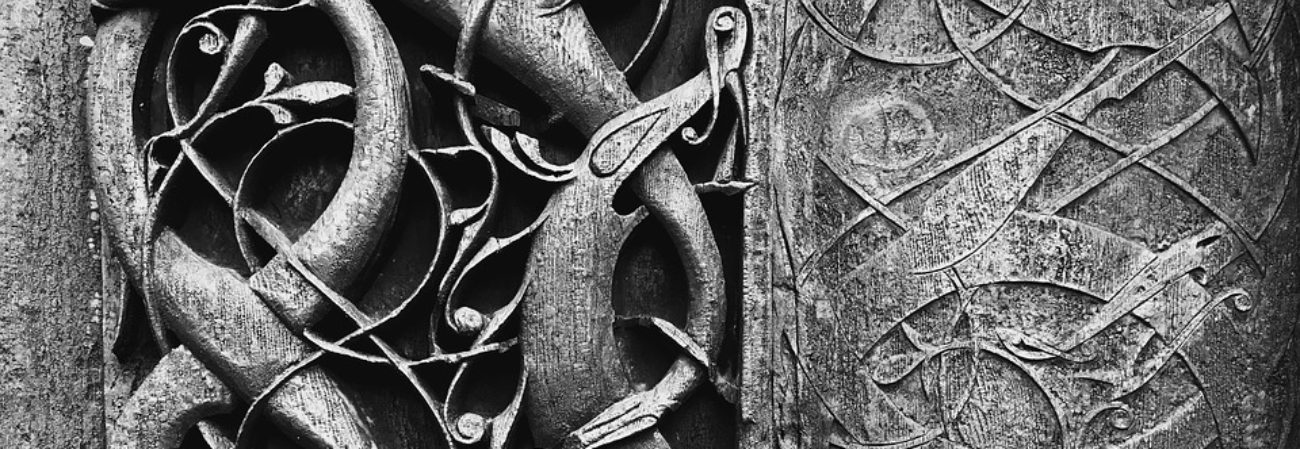
Constantinople lay at the mouth of Bosporus, leading to the Black Sea, surely one of her secrets to her expansive hold over commerce. Across from the Black Sea lay what is today Ukraine, but at the time was a constantly shifting arrangement of borders between the Varangian Rus, the nomadic Penchnegs and the ever opportunistic Khazars. The Byzantine empire did business and war with all of them at one point or another.
Between the Black Sea and home, lay the Dnieper River for the Varangian traders that made their way to and from the empire with their wares, furs, slaves, honey and many other things.
In The Serpentine Key, Sven sets sail across this sea on his mission with Vladimir of Kiev in a small, two-man boat.
This was to be a clandestine operation. No need to leave from the main shipping area on the Sea. The boat was similar to the rigged faerings he was used to from back home, easily manned by two men, especially if one sailed close to shore. The waters themselves were usually calm, even at this time of the year. The Scythians called these waters Axinos – black. The Greeks called it the Euxine Sea.
The Serpentine Key by G.S. Brown
The Black Sea has not the biodiversity of flora and fauna of an area such as the Mediterranean. However there are at least three species of dolphins living in the Black Sea as well as jellyfish a small type of shark, crabs, mussels and scallops. There is speculation that because of a lower layer of water saturated with hydrogen sulfide and that beneath this is a completely different world fed by an underwater river originating in the Bosporus.
in 2018 one of the oldest intact shipwrecks ever found was confirmed at the bottom of the Black Sea. The Bronze age relic was dated to 2,400 years old and found at a depth of 2,000 meters. It has been likened to the ship on a vase depicting Homer’s Odyssey. The researchers said they would likely find items such as copper (a hot commodity at this time) and amphorae of wine.
At the height of the Byzantine Empire, the Black Sea continued to be an important avenue for trade and chief among these trades were slaves. As Islam did not allow the enslaving of other Muslims and Christianity did not allow the enslaving of other Christians, the prime victims for enslavement were the pagan Slavs. In fact, the name Slav is commonly cited as the origin of the word “slave” so often were these unfortunate people enslaved by both Christians and Muslims. As the Slavic tribes gradually fell under the sway of Christianity, they became less and less fodder for enslavement with the Christian empires, but many Europeans were still being captured and enslaved by Ottoman Turks as late as the nineteenth century.
Because of the location of the Black Sea, it was not only an avenue to the Dnieper and Rus’ (now modern day Ukraine and Russia) but also a way to the East, especially the Levant. Commerce was alive and well and thriving throughout the time of the Byzantine Empire and it is safe to say that Black Sea more than helped to facilitate this as maritime travel was cheaper and faster than overland.

But just as the Black Sea brought silk and spices to the people of Constantinople it also brought violence. in 941 the Rus, originally immigrants from Scandinavia, launched a series of attacks with 1,000 ships (which must have been an incredible sight) upon Constantinople and were only repelled with the aid of Greek Fire. Though they were defeated, the Rus led another larger force in 944 and this time the Byzantines elected to settle the difference with trade agreements rather than prolonged warfare. The Rus’ were notorious for the brutality of their warfare, nailing the heads of captives and crucifying others. Clearly, the Byzantines felt they would make better trading partners than enemies and in the decades that followed there was a steady stream of commerce down the Dnieper into the Black Sea and the heart of the Empire. However, except for Varangian Guard, they were specifically forbidden from carrying weapons in the city or having too many of them in the city at one time. The Empire was not ready to go toe to toe with these fierce warriors again soon. In 988, Vladimir the Great of Kiev became a Christian and the Emperor’ brother-in-law, effectively changing the Nordic/Slav culture north of the Black Sea forever.
